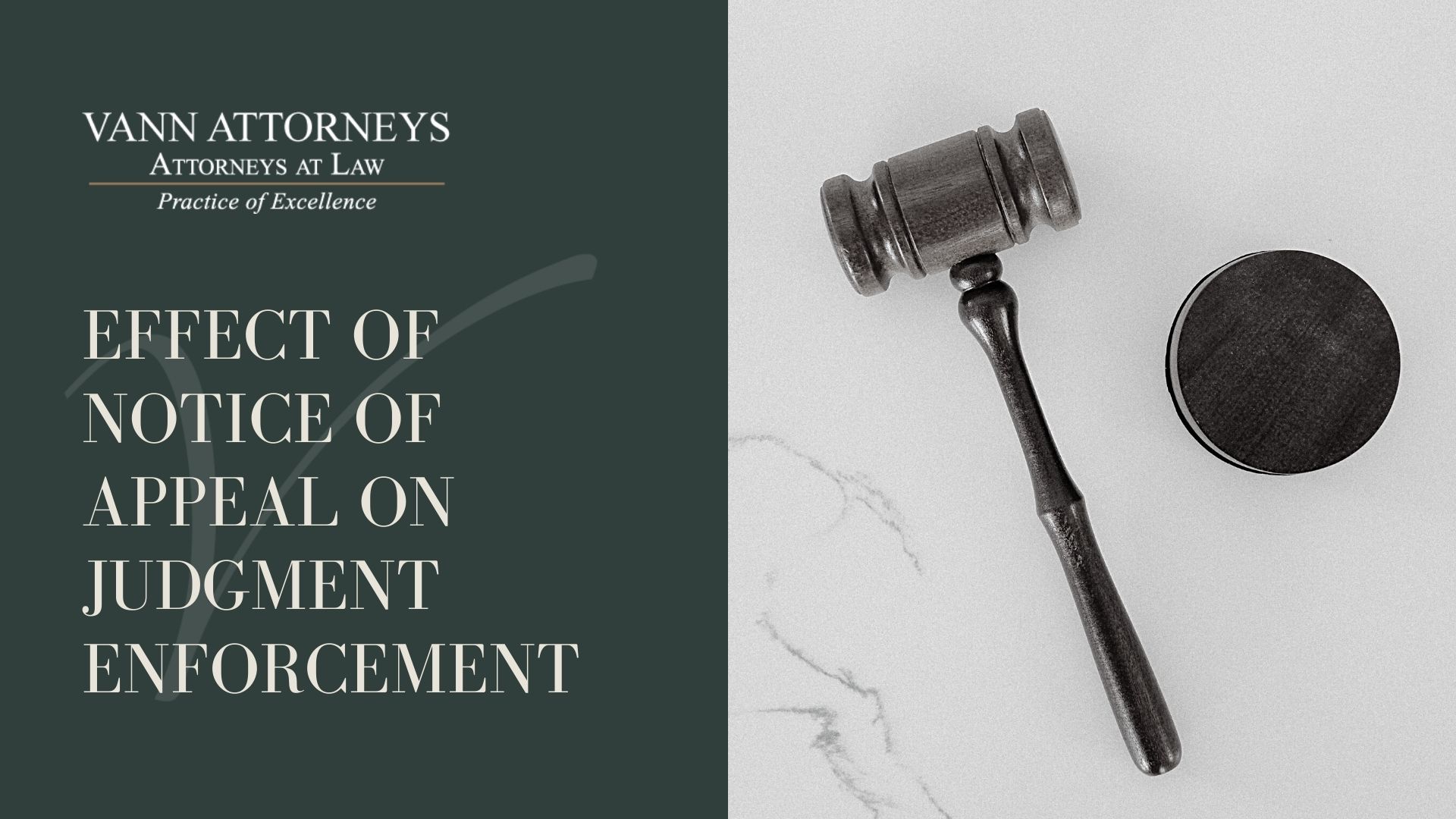Effect of Notice of Appeal on Judgment Enforcement
By Ian Richardson
Attorney at Law

We often have situations arise where a debtor seeks to avoid execution on a judgment by giving notice of appeal to the North Carolina Court of Appeals. Often debtors, and even some lawyers, operate under the impression that if they appeal a judgment, a creditor is precluded from taking steps to execute on the judgment. This is an incorrect assumption.
Rule 62 of the North Carolina Rules of Civil Procedure provides, in pertinent part: “When an appeal is taken, the appellant may obtain a stay of execution, subject to the exceptions contained in section (a), by proceeding in accordance with and subject to the conditions of G.S. 1-289, G.S. 1-290, G.S. 1-291, G.S. 1-292, G.S. 1-293, G.S. 1-294, and G.S. 1-295.”
N.C. Gen. Stat. § 1-289 states, “In an action where the judgment directs the payment of money, the court shall specify the amount of the undertaking required to stay execution of the judgment pending appeal as provided in subsection (a2) of this section.” The factors considered in determining the amount of the undertaking are the amount of the judgment, the amount of the limits of all applicable liability policies of the appellant judgment debtor, and the aggregate net worth of the appellant judgment debtor.
It is critical whether you are an appellant judgment debtor, or a creditor seeking to collect on a judgment you have lawfully obtained, that you understand the effect, or lack thereof, of giving notice of appeal on judgment collection efforts. Under North Carolina law, parties are afforded a hearing regarding what amount of an undertaking is required in order to stay an execution. At this hearing, a creditor’s attorney will argue for a sufficient undertaking to adequately secure the judgment obligation during the pendency of the appeal. A debtor’s attorney, on the other hand, will seek to minimize the amount of the undertaking.
Often there is an opportunity to for a creditor to successfully engage in collection efforts if the debtor has incorrectly assumed filing a notice of appeal stays a judgment execution. As such, it is important for a creditor not to be dismayed if a debtor gives notice of appeal. Instead, the creditor should consult with an attorney to determine whether the debtor has followed Rule 62 of the North Carolina Rules of Civil Procedure, or whether a window of opportunity for collections exists.
If you find yourself either facing an attempt by a creditor to collect a judgment, or if you are a creditor seeking to collect when a debtor has given notice of appeal to the North Carolina Court of Appeals, we would be glad to discuss your options with you. The most important thing to remember in this context is to never assume that a stay is automatically in place simply by virtue of filing a notice of appeal.
Wisdom, Experience, Results
Learn More from Vann Attorneys
Vann Attorneys stands ready to meet the diverse needs of clients ranging from individuals to privately held family businesses to corporations with national distribution. The firm represents clients throughout North Carolina and the United States. We periodically publish content that is relavant to our clients and community. Keep reading our 'News & Events' page on the topics most important to you and your business.
Proven
Experience on
Your Side
Leave a message
Raleigh Office
RALEIGH HOURS
| Mon | 8am - 5pm |
|---|---|
| Tues | 8am - 5pm |
| Wed | 8am - 5pm |
| Thurs | 8am - 5pm |
| Fri | 8am - 5pm |
Charlotte Office
CHARLOTTE HOURS
| Mon | 8am - 5pm |
|---|---|
| Tues | 8am - 5pm |
| Wed | 8am - 5pm |
| Thurs | 8am - 5pm |
| Fri | 8am - 5pm |



